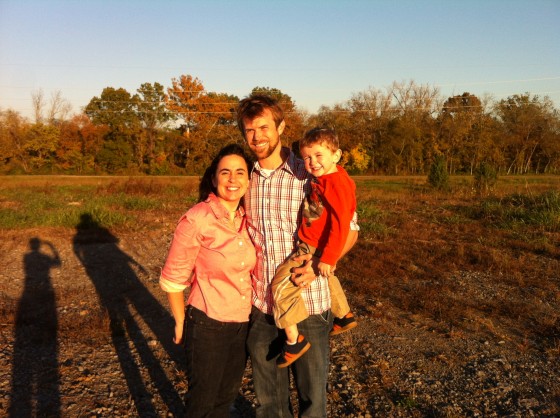
image credit: CreationSwap user Tim Mossholder. Edits mine
I’ve been a small groups pastor now for more than 7 years. I’ve led at Grace Community Church, Long Hollow, and I’m now at Saddleback Church.
I love group life. I love recruiting, training, equipping, challenging, scheming, planning, dreaming, and writing. I believe that groups are the heartbeat of a local church, and one of the most beautiful expressions of the authentic Christian life.
But being a groups pastor isn’t all rainbows and butterflies. Or if that’s not your thing…it’s not all coffee and bagels. Turns out, this is hard work. but it’s hard work worth every ounce of sweat, every drop of creativity, and every inch of effort you can give.
I’ve had lots of folks tell me that they’d love to get in the small groups space. Some have been high school students ready to jump in to ministry. Others have been guys who are currently in a ministry that they don’t love. Each person has experienced life change through small groups, and would love to invest their lives making that happen. Here are some of the things I’ve told them as a “heads up” before they dabble their toe in the water.
10 Things Nobody Told me about Being a Small Groups Pastor
1. Not everybody will like you.
Especially when you tell them, “I don’t have a small group for you right now.” Or “No, we don’t have that kind of group.” Or, “I’m sorry that small group life is difficult.” Or, “Ouch…she said that in your small group?” because no perfect people are allowed. Or, “No, we won’t have a small group where you teach for 2 hours every week about the coming rapture…about the evils of smoking cigarettes…about how our society is going to Hell because we watch rated R movies…about how all single moms are dirty rotten sinners.” Small group pastors must have tough skin.
2. Small groups are messy.
If you enjoy coloring in the lines, and having everything neat, pretty, and always on schedule, find another ministry. Small groups are messy and difficult because people are messy and difficult. Small group pastors have to find the beauty in the mess. It’s there, like a diamond hidden among the rough. God’s at work right in the midst of the nastiest junk in people’s lives, and that junk comes out in small groups. Get ready for it.
3. Not all of the staff will be fully supportive.
I naively thought that every staff member would wholly embrace small groups with no explanation, no push-back, no confusion, and with arms wide open. Turns out they’ve got thoughts, questions, and legitimate concerns, too. This isn’t all bad, because it pushes you to answer some hard questions. Just a heads up. Knowing is half the battle, right?
4. Getting life change stories from small groups will be tough.
Mining stories is unbelievable valuable in shifting people’s hearts towards group life. Figuring out the best way to mine those is tough, though. And there’s no one “right” way to do it. Sometimes it’s best to shoot videos, other times to simply send out emails. Other times interviewing on stage is best. But capturing those stories is tough. Get ready for a challenge.
5. If you don’t do anything, nothing will happen.
Small groups ministry doesn’t run on a weekly cycle like student ministry (with Wednesday night programming), children’s ministry, or the worship team (with Sunday morning programming). So if you’re not a self-motivated, self-driven starter, you’ll languish. There are certain times every year where groups are launching, but in between those times, you’ve got to keep the wheels moving. If you don’t, things don’t naturally happen. Community doesn’t bubble up from the ground. Structures don’t naturally form. Schedules and timelines don’t magically happen. Know that if you don’t do anything in the down times, nobody else will.
6. You’d better be awesome at recruiting.
A big chunk of the role of the small groups pastor is in recruiting. Whether you’re recruiting a group leader, a coach, a potential hire, a current staff member, or a small group leadership board, the small groups pastor never gets a day off. Recruiting can and does happen anywhere, anytime. You’d better be good at it. Or learn to be.
7. You’ll have to constantly teach people what small groups are.
You may not be teaching from stage every week, but “teaching” is a key function of the groups pastor. No matter what your culture is, you’ll have to be teaching people the value of healthy community. Teaching people your process for assimilation, your process for discipleship, and your groups structure. You’ll teach new members, existing ones, staff members, and new recruits. Always be on your toes.
8. Small group coaches are vital.
The group leader that’s not coached will not be all he or she could be. And you, the groups pastor, can’t coach every leader. Unless, of course, you just have 1 or 2 other leaders. If you have more than 2 leaders, recruit a coach. They’ll help you invest time in leaders, give them a support structure, let them have a voice, and ensure they’re being encouraged, corrected, and cared for. Every small group structure has to involve coaches. Or assimilators. Or champions. Or directors. Or advocates. Or whatever you call them.
9. Get a team of supporters. Now.
Build a base of people who understand and support your vision. They don’t have to be small group leaders themselves, but they need to be strong leaders who buy what you’re selling. Vision leaks, and you want others leaking your vision across the landscape of your local church. Know who your friends are. And give them insider information.
10. This is the most fun job in the whole church.
It’s messy. It’s difficult. It’s frustrating. But at the end of the day, your role exists to help people find God’s beautiful gift of community. You get the chance to create environments where people are free to explore faith, and experience church in a transparently safe way. It’s an amazing ride.
Are you a small groups pastor? Know one?
What did I leave out?












